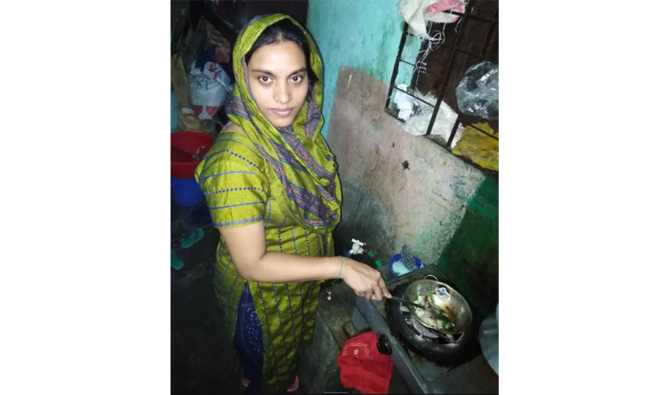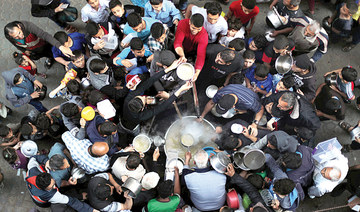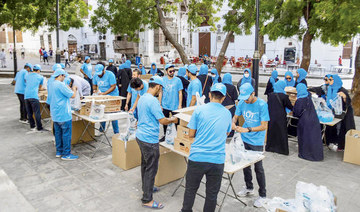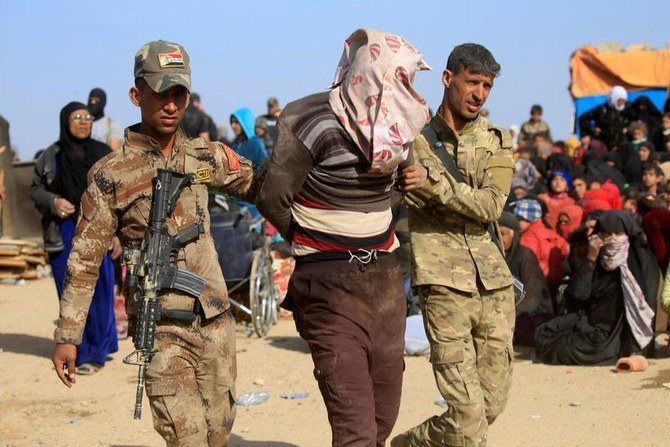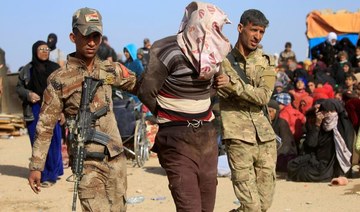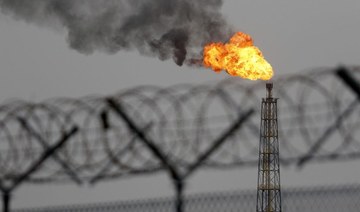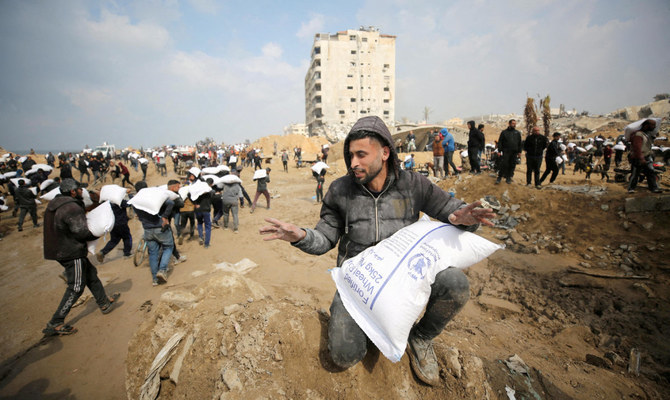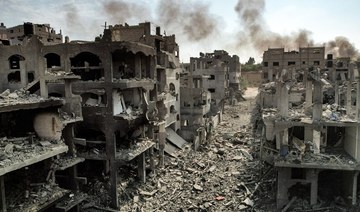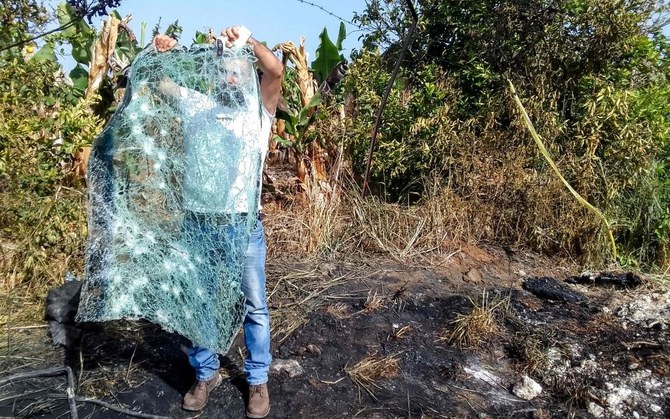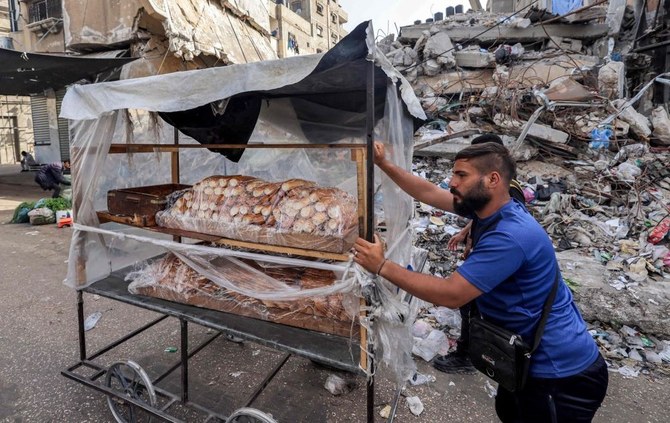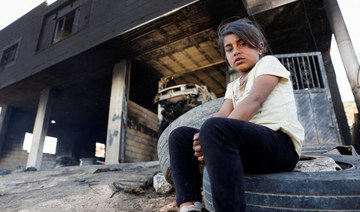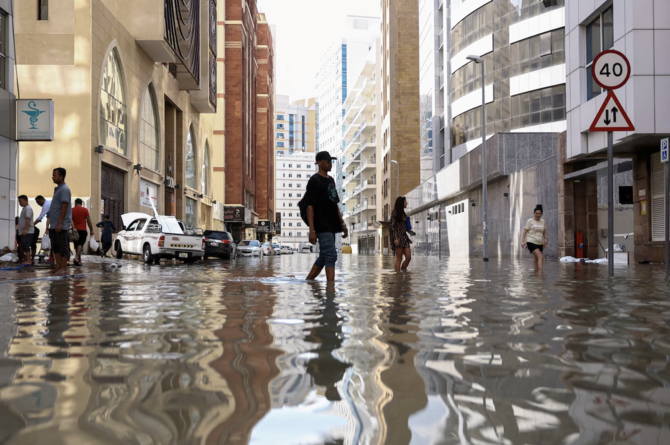DHAKA: Alo Begum was aged just 16 when she boarded a plane to begin a new life in Lebanon caring for a woman 44 years her senior.
The Bangladeshi teenager’s family had hit upon hard times and a move abroad offered better job prospects. But rather than being a hardship, Begum’s new career became a labor of love.
She forged an almost instant bond with her new Lebanese employer, Shahira Lakij, which lasted through eight Ramadans and created memories she will never forget.
Lakij was suffering from cancer, but the illness didn’t stop her from taking it in turns with Begum to learn about each other’s customs and traditions. And it was their mutual love for a staple Bangladeshi breakfast treat – deep-fried puff pastries – that cemented their relationship.
“Among the Bangle dishes, Shahira liked the mughlai paratha the most. It’s a special preparation of a savory pastry which is made with a combination of flour and eggs. I taught her how to cook that,” Begum, now 25, told Arab News, as she recalled some of the things she missed most about Ramadan spent in Lebanon.
Around 500,000 Bangladeshi women are currently employed as domestic workers in the Middle East, with the South Asian country being one of the biggest sources for migrant workers around the world.
For Begum, her first experience of working in a foreign country was daunting. She started her employment in 2010 and said to begin with it was an uphill task, each day being a learning experience.
“Everything was new for me – whether it was kitchen appliances, washroom fittings or home cleaning materials ... but because of Shahira, I got acquainted with the new form of urban life. She was so kind,” said Begum, from the city of Barishal in south-central Bangladesh, 246 km from the capital Dhaka.
Begum was the youngest of three siblings. Her father was a farmer and her mother a housewife. She decided to move to Lebanon when the family’s financial situation took a turn for the worse – a decision she would never regret.
“I spent around eight years with the (Shahira’s) family. They were so good that Shahira would celebrate my birthday with cake, chocolate and other gifts. I still remember the day she died – it was one day before my birthday,” said Begum.
She tries to keep that bond alive by cooking her favorite Lebanese dishes for her own family in Bangladesh.
“Shahira was physically weak from the cancer and could not stand for a long time in the kitchen. She would guide me step by step and that’s how I learnt to make Lebanese dishes such as kusa, orarish, kassi bil zeish, kassi bil samad, shistao, lubi bil lakhme, and zuenih bil foron,” she said, adding that kassi bil samad was now a family favorite, a fish which her husband loved to eat.
Drawing comparisons to the Ramadan spent in Lebanon with those observed in Bangladesh, Begum said there were several cultural differences, but one stood out. “Arabs love to get together after the Taraweeh prayer, and it continues until suhoor in the early morning. But in Bangladesh people usually go to bed around 10 p.m.,” she said.
Begum returned home more than a year ago after Lakij died, but said she still misses her old friend and keeps in touch with her family.
“Since I got married last year and started my own family, I can’t go to Lebanon right now. Otherwise, I would love to go back once again,” Begum added.
Another Bangladeshi housemaid, Lucky Akter, 24, recently returned from Jordan after two years caring for two children from a family based in the city of Akaba. Akter’s employer, Ehab Maita, was a civil engineer, while his wife Habil was a police officer.
“The family’s youngest son, Sunny, was born just six months after I arrived. Laila, their daughter, was only three then,” Akter told Arab News. “Sunny was so attached to me that he called me mom. Habil calls me almost every day and I talk with the kids. They used to cry on the phone and asked me to go back again.”
Although another Bangladeshi housemaid did the cooking, Akter learned to make a number of Jordanian dishes, such as magmura and lithue, and occasionally served Bangladeshi cuisine for the Maita family.
“I prepared lentil and tomato sauce for them in a Bangladeshi style. They liked it so much that Habil learnt the cooking process from me,” added Akter. “I miss the kids and the employer family a lot. They loved me and Bangladeshi culture.
“After returning home I sent them several videos of my area, which they liked, and they have promised to visit Bangladesh when the opportunity arises.”
Akter’s husband Jakir Moral, 26, will soon be the one leaving home to work abroad. He goes to Dubai this month leaving Akter behind in Bangladesh to care for their 7-year-old daughter.
Domestic worker, Jesmin Islam, has been back in Bangladesh for a year after spending two years working in Riyadh.
The 35-year-old, from Madaripur district, which is around 200 km from Dhaka, was employed by Tarek Rahman and his wife Huda as a domestic aid.
“In the beginning, it was not easy to understand the employer’s language and culture, but after several months I managed to learn the language and preparations of Arabian food with the help of the employer’s wife,” Islam told Arab News.
Within a short time, she was able to cook Arabian dishes such as sarba, zerish, khyasap and oragaina. “I liked the zerish most during my days in Saudi Arabia and even after returning home I prepared this food several times for my children,” added Islam.
She said zerish tasted similar to a Bangladeshi dessert called payesh which is made of rice, milk and sugar. Zerish is also prepared with rice and milk, and a kind of milk shake.
The Rahman family had three daughters and one son, and Islam developed a good relationship with the eldest daughter Ruba, 20. Islam is a widow with two school-aged children and has hopes of working for the Rahman family again.
Bangladeshis have been working as housemaids in the Middle East since 2002, and according to Shameem Ahmed Chowdhury Noman, secretary general of the Bangladesh Association of International Recruiting Agencies (BAIRA), around 500,000 women from the nation are currently employed as domestic workers in Middle Eastern countries. In all, around 2 million Bangladeshi migrants are employed in the region, he said.
Migrant workers provide the second-largest revenue stream for Bangladesh after garment exporting, last year pumping an estimated $13.5 billion into the economy.




